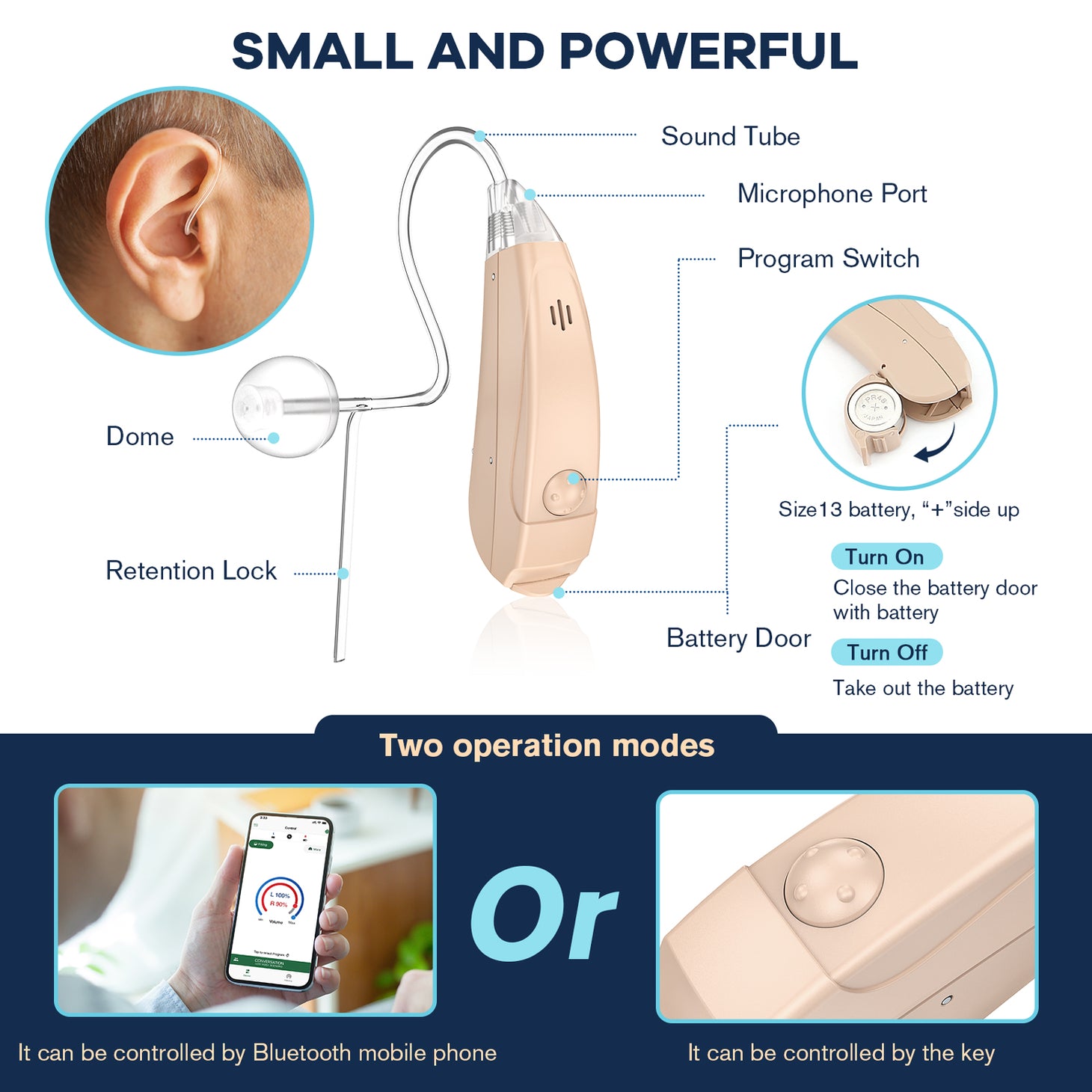In today's technologically advanced world, non-Bluetooth hearing aids remain a popular choice for many individuals experiencing hearing loss. While Bluetooth-enabled devices offer modern conveniences, traditional hearing aids provide unique advantages that cater to specific user needs. This article explores the benefits of non-Bluetooth hearing aids and why some users prefer these traditional options.

Understanding Non-Bluetooth Hearing Aids
Non-Bluetooth hearing aids are devices designed to amplify sound without the use of wireless connectivity. They typically operate using analog technology or basic digital systems. Many users find these devices straightforward and effective for their hearing needs. But what makes them stand out?
1. Simplicity and Ease of Use
- Non-Bluetooth hearing aids are often easier to operate, making them ideal for individuals who may not be tech-savvy.
- They usually come with fewer buttons and settings, allowing users to focus on sound amplification rather than navigating complex features.
- For those who prefer a straightforward solution, these devices can be a perfect fit.
2. Cost-Effectiveness
Another significant advantage of non-Bluetooth hearing aids is their affordability. Traditional hearing aids generally cost less than their Bluetooth counterparts. This price difference can be crucial for individuals on a budget or those without insurance coverage for hearing devices. Additionally, the maintenance and repair costs for non-Bluetooth models are often lower, making them a financially sound choice.
3. Reliability and Durability
Non-Bluetooth hearing aids are known for their reliability. Without the complexities of wireless technology, these devices tend to have fewer points of failure. Users can trust that their hearing aids will function consistently in various environments. Furthermore, many traditional models are designed to withstand daily wear and tear, ensuring longevity.
4. Reduced Distractions
For some users, the absence of Bluetooth connectivity means fewer distractions. Non-Bluetooth hearing aids focus solely on amplifying sounds from the environment, which can be beneficial in situations where users want to concentrate on conversations without the interference of notifications or other digital distractions.
Who Should Consider Non-Bluetooth Hearing Aids?
Individuals who may benefit from non-Bluetooth hearing aids include:
- Older adults who prefer simplicity and ease of use.
- Budget-conscious individuals seeking effective hearing solutions.
- People who work in environments where reliability is crucial.
- Users who want to minimize distractions from technology.
Conclusion
While Bluetooth hearing aids offer modern features and connectivity, non-Bluetooth hearing aids provide essential benefits that cater to a diverse range of users. Their simplicity, cost-effectiveness, reliability, and focus on sound amplification make them a preferred choice for many. If you are considering hearing aids, it is worth exploring both options to determine which best suits your lifestyle and hearing needs.
For more information on hearing aids, including Bluetooth options, visit .








